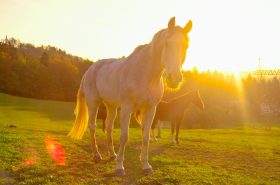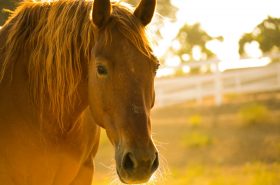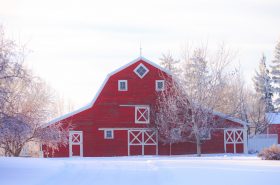Ask different horse owners, and you’ll likely get different opinions on what type of feed is best for horses. Unfortunately, many people don’t give enough thought to the other part of the horse’s diet—the part that should actually make up the majority of what a horse eats: forage. In fact, horses are designed to eat primarily forage. The purpose of concentrates is to provide added energy, calories, and other nutrients, but they aren’t always needed, and in fact, feeding too much of a concentrate can lead to problems such as colic, founder, or even ulcers.
Here are five reasons to feed more forage:
1.) Good quality pasture or hay can provide most of the nutrients a horse needs. You can find out exactly what it’s in your forage if you send a sample in to your local county extension office or a company like Equi-Analytical. Because hay has been cut and dried, it’s always going to be lacking in some vitamins, so providing a good multi-vitamin/mineral or a ration balancer is important.
2.) The act of chewing forage helps to prevent ulcers. A horse’s stomach produces acid on a continual basis, but when they chew, saliva is produced. Saliva contains bicarbonate and calcium, which both buffer stomach acid. So essentially, no chewing = no saliva = a more acidic stomach which, in turn, creates prime conditions for stomach ulcers to develop.
3.) Forage-based diets decrease the risk of colic. When a horse is allowed to eat forage as he pleases, this keeps the gut moving. By contrast, when things slow down in the gut, colic is more likely to occur.
4.) Having continual access to forage decreases boredom and can reduce the likelihood for the development of stereotypical behaviors such as cribbing or wood-chewing. (Of course, providing horsey friends and decreasing stall time helps with this as well.)
5.) Eating hay helps to keep your horse warm in the winter. This is because, when the horse digests high fiber foods like hay, heat is produced by the microbes in the gut. The colder it is (below 30º Fahrenheit), the more hay your horse will need in order to stay warm.
Next time you’re tempted to increase your horse’s grain or concentrated feed, consider increasing the forage instead. There are many benefits to it!



